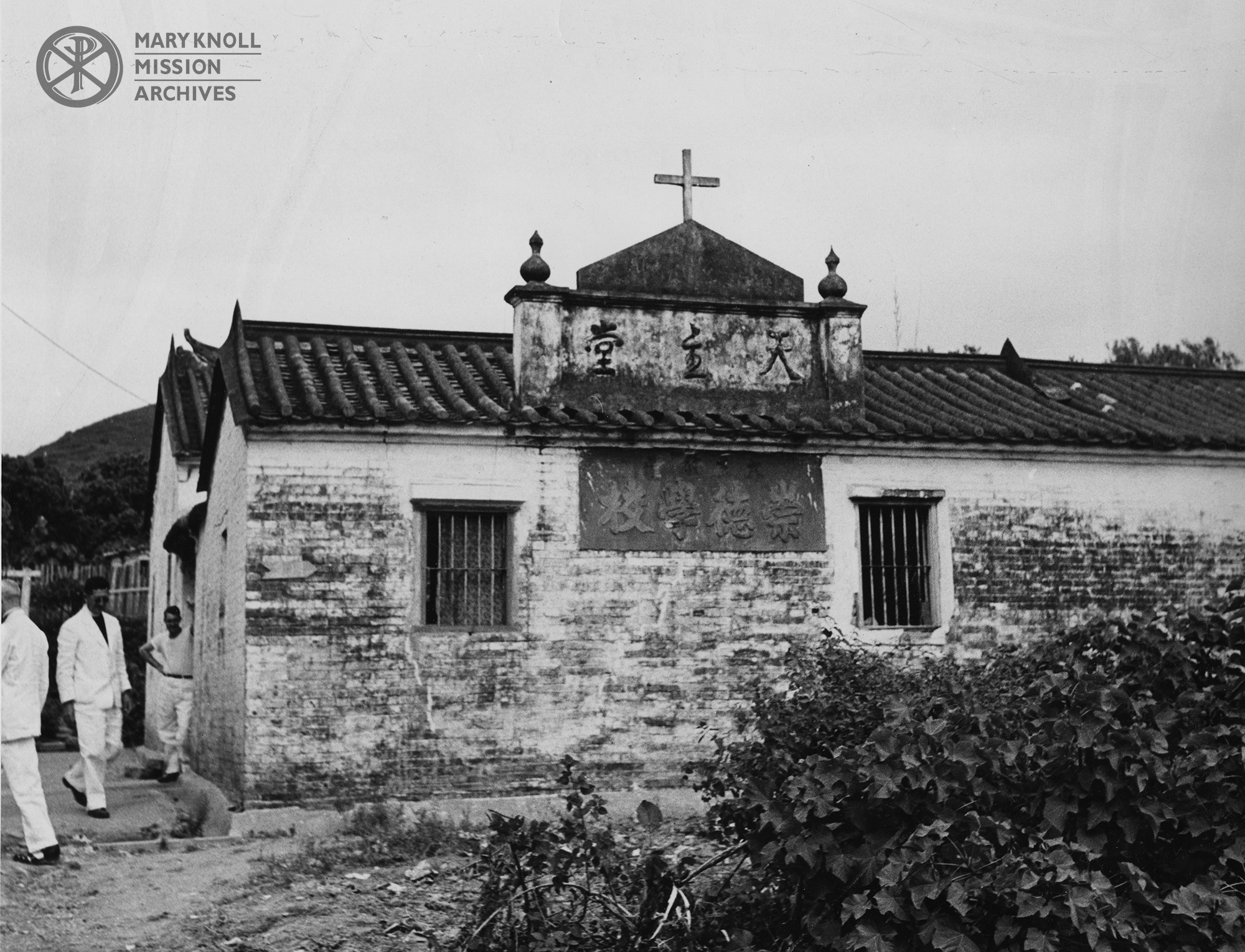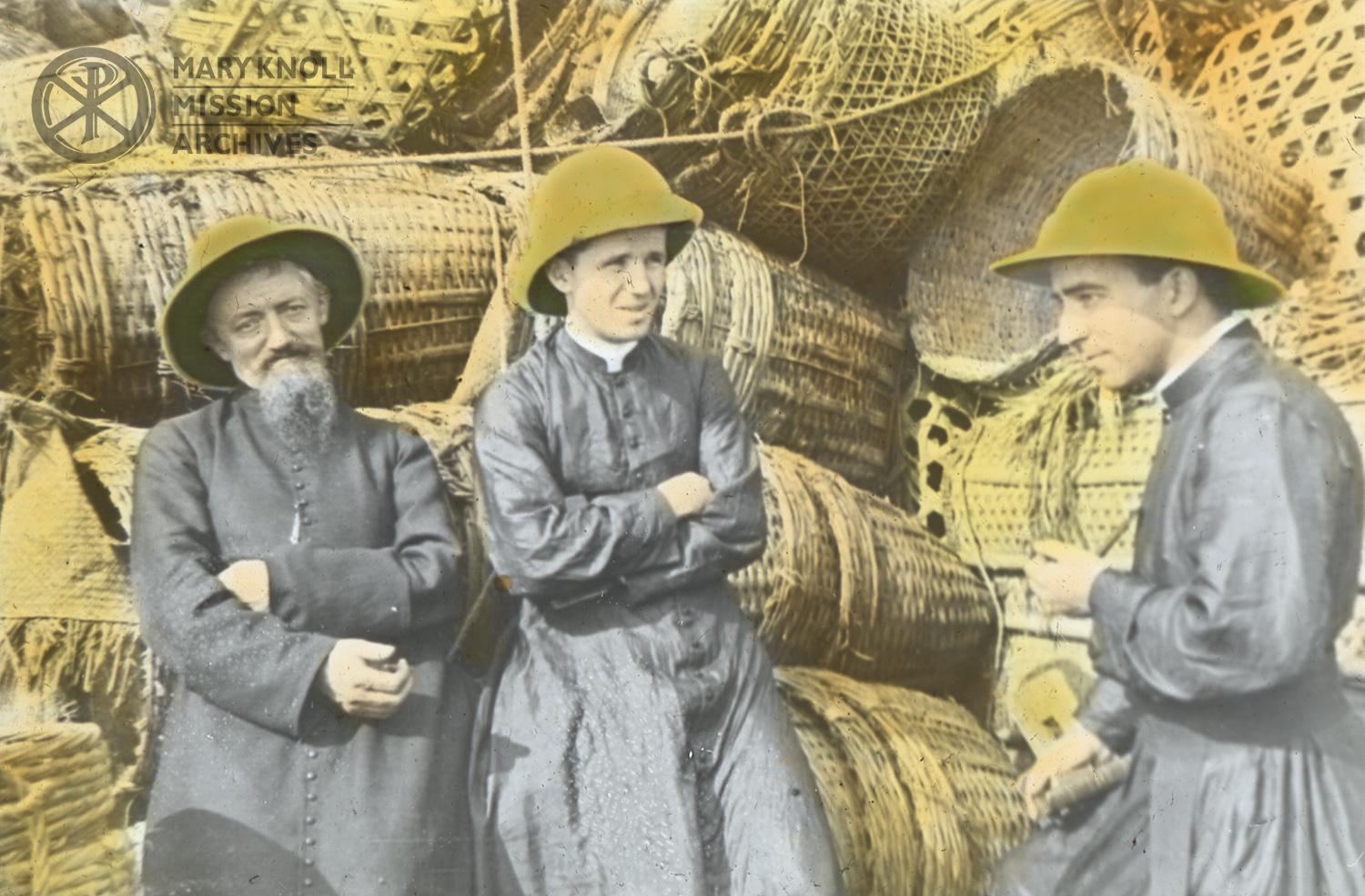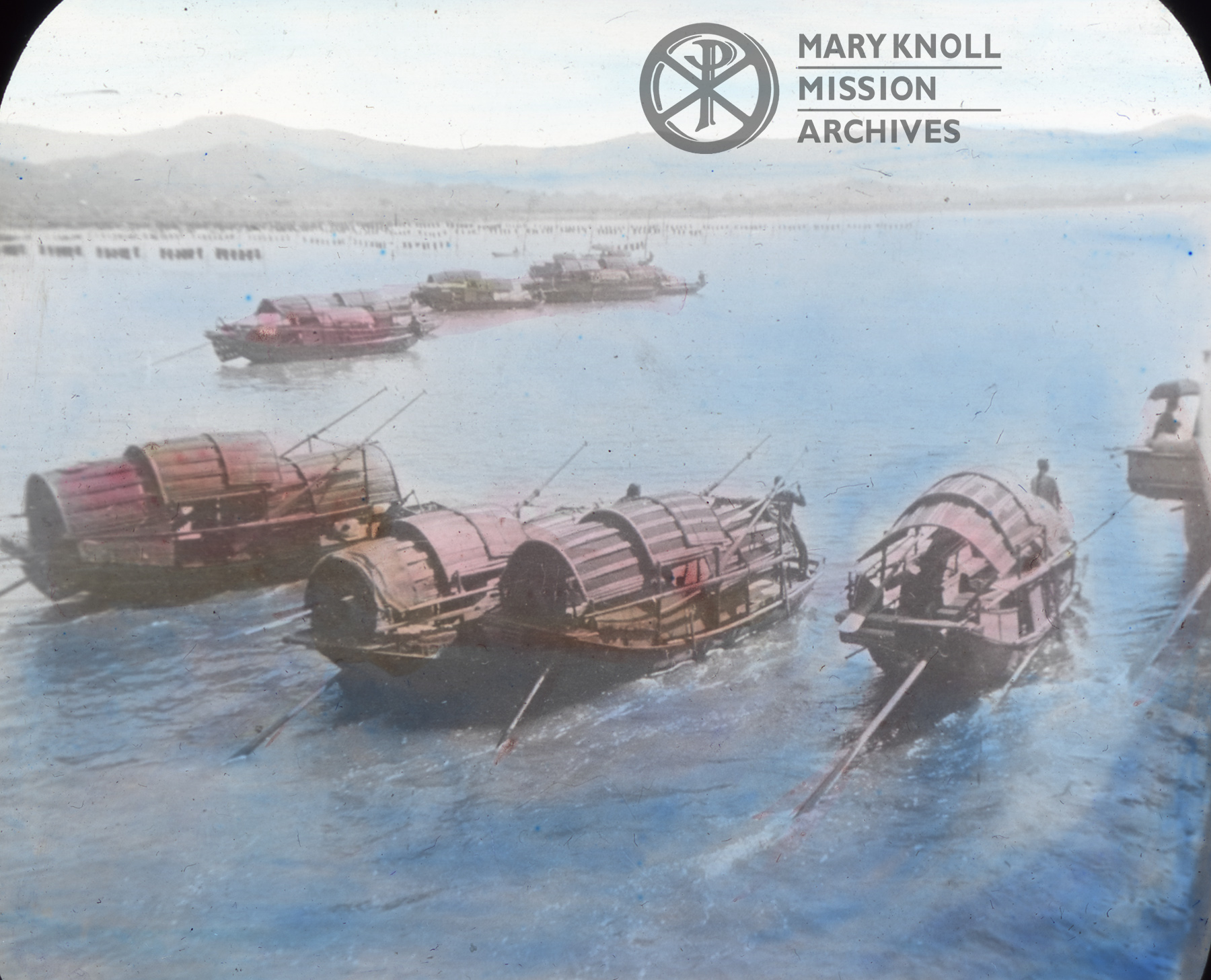By December 1918, the first four Maryknoller missioners sent overseas had arrived at their destination in China. Once they settled in, I can only imagine what they were thinking and feeling about what lay ahead of them. Luckily, we have a copy of a letter written by Father Francis Ford, dated January 9, 1919, wherein he details what occurred on their very first mission trip.
Our first mission trip! It’s as hard to describe as one’s first dose of ether, but here goes! We left early Saturday morning, taking dinner close after breakfast for we were dubious about supper. Father Price wrote a long letter, possibly making his will and disposing of his royalties, while Father Gauthier [MEP], like a veteran, smoked up to the last minute, and then packed all his luxuries in a neat portable bundle. He insisted we include in our baskets wash basins, blankets, dishes, and Mass vestments, and we looked like Peary and Co. [discoverer of the North Pole], as we set out with our two porters, A-han the indispensable Chief Cook, and three chairs.
Pakwan was the destination, about three-and-a-half hours’ walk away across rice fields, mountain paths, and rotten bridges…Pakwan is not a city, nor even a village; it’s a row of houses without a wall or a gate. It gets its importance from being the center of shopping for many small villages. Twice or thrice a week the farmers carry their pigs, peanuts, and poultry there, and set up their stools on the roadway to bargain with traders from Yeungkong who sail up the river. On market days the enclosure has a hundred traders, though few live there day and night.
We timed our pastoral visit to meet the farmers, and we had to plow through disgruntled pigs to reach the Mission…. When we arrived, the roof of one of the rooms had fallen and a spring typhoon had blown down a wall. However, the Christians exploded some firecrackers at our feet and we felt at home. We took the occasion of their presence to borrow two lamps and some fire wood, and they supplied us with eggs and oranges, and our thermos bottles gave us hot coffee… There was a deserted air about everything, that must have tried Father Gauthier’s heart, for he had built up the whole plant; but he was mighty cheery about it, and the fairly good turnout of Christians to welcome us and attend night prayers made us reconciled….
After Mass and a new supply of gifts in the food line, we inspected the neighboring village. On the way there were lepers, who live on the outskirts and seem to be on speaking terms with the farmers. During the day they mingle with the other workers, and at night go to their homes (little straw huts) that edge the river. We passed at least thirty of these huts.
The streets of the village are dried water-courses, made in the sandy soil when the river rises. Luckily they were pure sand in the winter as we tramped them. The luxuriant bamboo and banana trees, and the mud-brick walls of the houses, seemed a part of the whole. We passed from one house to another, visiting a cripple who could not come Mass, blessing the home of another old man and ending up in the community watch-tower where the young men take turns watching the river for bandits. There were about two dozen rifles stacked in one corner, and on the roof heavy stones were piled to heave at the enemy.
After Mass [the next morning] we packed up the blankets and a half-dozen eggs that remained from the feast of the previous day. A stiff wind from the north invited us to sail down the river instead of walking, but when we tried to get a boat the owner had no sail. He borrowed a mast from his neighbor, and a quilt of cane that does duty in these parts for a sail, and we pulled up the anchor, but the water was too shallow. The captain and his three mates, who were his mother, his wife, and daughter, immediately jumped overboard and shoved the sampan into the current.
Father Gauthier was at home in the bottom of the boat and Father Price joined him for a nap… The wind died down after two hours, and we ‘hoofed’ the rest of the way along the foot paths that lead to Yeungkong. We missed two classes in Chinese, but the experience was a spur to study harder. We shall visit Pakwan again in a few weeks.



